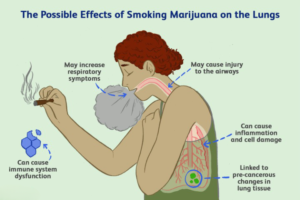Second only to heart disease as the top cause of mortality in the US, cancer may often be cured with early diagnosis. According to Brittany L. Bychkovsky, MD, MSc, “I advise my patients to keep an eye out for anything that’s new and persistent in becoming worse over a period of two weeks, and if that happens, to give us a call to let us know what’s happening and we’ll have you come in for an appointment.” Therefore, I don’t need to be informed if you injured your knee while jogging and it is now better.
Signs You’re Developing Cancer
1. Being Overweight
The CDC claims that being overweight or obese increases the chance of acquiring 13 different cancers.
According to Anne McTiernan, MD, PhD, a cancer prevention researcher at the Fred Hutchinson Cancer Research Center in Seattle, “Excess fat tissue causes an overproduction of several blood and tissue factors that can initiate or promote growth of tumors, such as estrogens, testosterone, inflammation, insulin, and factors that cause growth of blood vessels that can feed tumors.”
“Being overweight or obese increases the chance of developing various malignancies in both men and women. We discovered that weight reduction, even a 5% to 10% drop of initial weight, dramatically decreased blood levels of estrogen, testosterone, insulin, and indicators and biomarkers connected to inflammation “in angiogenesis.
2. Smoking
It should come as no surprise that the CDC ties tobacco use to cancer everywhere on the body. According to Anthony J. Alberg, PhD, MPH, a cancer epidemiologist, “cigarette smoke contains hundreds of compounds.”
“Of those, more than 65 are known to cause cancer, and hundreds are recognized to be dangerous poisons. It is not unexpected that smoking has been linked to a variety of cancers given the extent of exposure to so many carcinogens and cancer-causing substances.”
3. Drinking Too Much Alcohol
The CDC reports that consuming alcohol increases the chance of developing six different types of cancer. According to assistant professor Kara P.
Wiseman of the Department of Public Health Sciences and UVA Cancer Center at the University of Virginia School of Medicine, “It is important that people are fully aware of the potential harms of alcohol so that they may make informed decisions about consumption.”
“We may be able to start addressing a major cancer risk factor by identifying approaches to facilitate consistent dialogue about alcohol between physicians and patients, and producing messaging about the potential dangers of alcohol,” says the study.
4. Genetics
The CDC advises seeking medical advice if cancer runs in your family. According to cancer genetic counselor Jill Stopfer, MS, LGC, “It’s true that some people are born with a significantly higher risk of developing a cancer than someone else, and I think this also ties back into what we’ve been discussing in regard to screening, because there are these wonderful population screening guidelines, but they’re not appropriate for everyone.”
“We search for individuals with a rich family background. So, do siblings, parents, or kids have cancer? The existence of a rare disease by itself, such as a sarcoma or other uncommon cancer, as well as even more distant relatives might occasionally provide us the hints we need to identify a pattern in genetic cancer risk.
5. HPV and Cancer
The CDC cautions that human papillomavirus (HPV) can cause a variety of cancers. According to Melissa Young, MD, a radiation oncologist at Yale Medicine who treats head and neck malignancies via Smilow Cancer Hospital, “Historically, excessive drinking and smoking were thought to be the main risk factors for oropharyngeal cancer.”
“But whereas the frequency of cancers linked to alcohol and cigarette use has decreased over the years, oropharyngeal cancers linked to oral HPV infection have increased significantly. Today, there is a link between 70 percent of oropharyngeal malignancies and “th HPV.”
6. Signs You May Have Cancer
“Cervical cancers come in more than 100 distinct varieties. According to the CDC, “the majority of cancers are called after the organ or kind of cell in which they first appear; for instance, lung cancer starts in the lung and laryngeal cancer starts in the larynx (voice box). “Symptoms might consist of:
- A thickening or lump in any part of the body
- Weight loss or gain with no known reason
- A sore that does not heal
- Hoarseness or a cough that does not go away
- A hard time swallowing
- Discomfort after eating
- Changes in bowel or bladder habits
- Unusual bleeding or discharge
- Feeling weak or very tired.”


